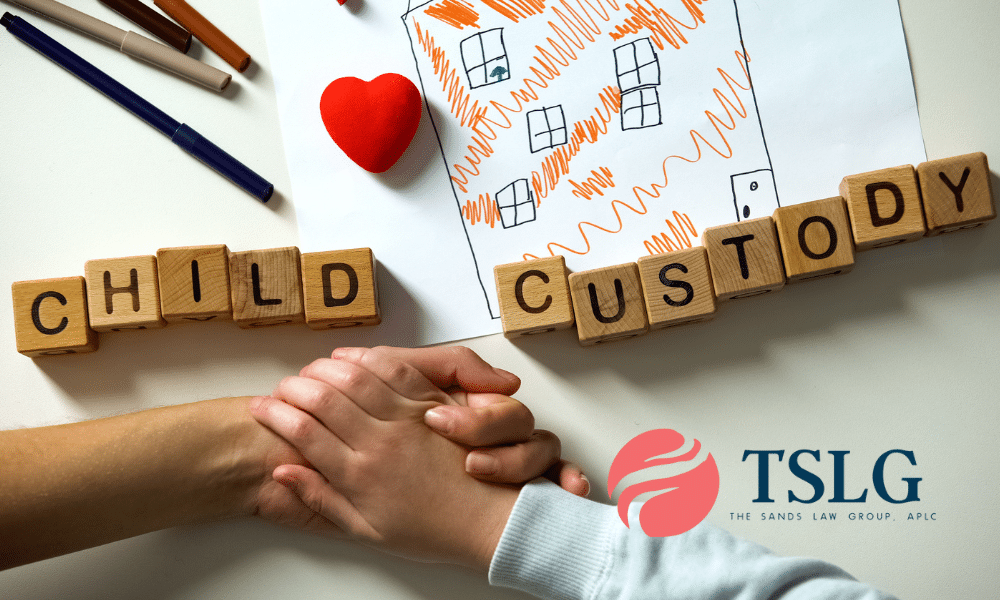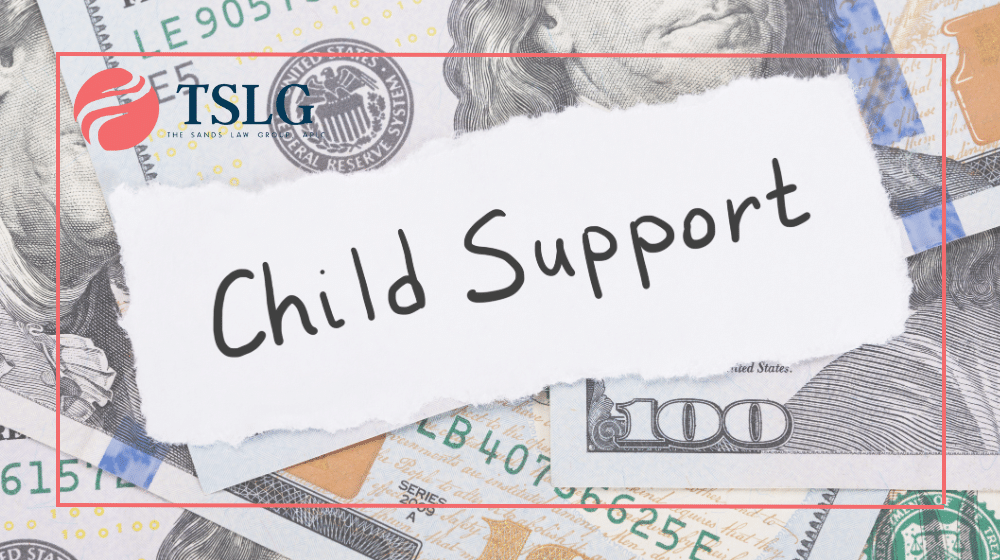What are my rights if my ex has sole physical custody?

Navigating child custody arrangements in California can be challenging, especially when one parent has sole physical custody and the other has joint legal custody.
If you find yourself in this situation, it is crucial to understand that, despite not having physical custody, you still play a vital role in your child’s life. Knowing your rights under joint custody can help you remain actively involved in important life choices and ensure that your voice is heard.
Learn more about what joint legal custody entails and why it is significant for your child’s future and how The Sands Law Group can help you and your family make decisions that are in your children’s best interests.
What Is the Difference Between Legal Custody and Physical Custody in California?
In California, child custody is divided into two main types: physical custody and legal custody.
Physical custody refers to where the child lives and who is responsible for their day-to-day care. This can be either joint physical custody, where the child spends time living with both parents, or sole physical custody, where the child lives with one parent full-time while the other parent typically has visitation rights.
On the other hand, legal custody involves the authority to make important decisions about the child’s life, such as their education, healthcare, and general welfare. In most cases, California courts award joint legal custody, meaning both parents share the responsibility of making these significant decisions, even if only one parent has sole physical custody. Joint custody ensures that both parents have a say in their child’s upbringing, maintaining a balanced involvement in the child’s life regardless of their living arrangements.
Benefits of joint legal custody
Joint legal custody offers several key benefits for both parents and children. The most significant advantage is that it ensures both parents remain actively involved in making important decisions regarding their child’s upbringing, even if only one parent has physical custody. This shared responsibility in child custody arrangements fosters cooperation and communication between parents, which is beneficial for the child’s overall well-being.
With joint legal custody, both parents have an equal say in major aspects of the child’s life, such as their education, healthcare, and religious upbringing. This balanced approach helps maintain stability and consistency in the child’s life, as neither parent can unilaterally make significant changes without the other’s consent. It also reinforces the idea that both parents are equally important in the child’s life, promoting a sense of security and emotional support for the child.
This collaborative effort can also reduce conflicts and misunderstandings, creating a more harmonious co-parenting environment.
Can Joint Legal Custody Work with Other Forms of Custody?
Yes, joint legal custody can coexist with other forms of child custody arrangements in California.
For example, one parent may have sole physical custody, meaning the child primarily resides with them, while both parents still share joint legal custody. In this setup, both parents retain equal rights and responsibilities in making significant decisions about their child’s welfare, such as education, healthcare, and religious upbringing.
This flexibility in child custody arrangements allows parents to stay involved in their child’s life, even if they do not share equal physical custody time. It ensures that both parents can contribute to essential decisions, promoting a balanced approach to parenting. However, it is crucial to remember that only one parent can claim the child tax exemption for a minor dependent, even if both have joint legal custody.
Understanding these nuances can help parents navigate their rights and responsibilities more effectively while prioritizing their child’s best interests.
Can my ex make major decisions without my input if I have joint legal custody?
No, your ex cannot make major decisions without your input if you have joint legal custody. Joint legal custody means that both parents have an equal right to make significant decisions regarding the child’s health, education, and welfare. This includes choices about schooling, medical treatments, and religious upbringing.
If your ex is making decisions unilaterally, it is crucial to address the situation calmly and clearly. Start by having a direct conversation with your ex to ensure there are no misunderstandings about the terms of your joint legal custody agreement. If the issue persists, you can seek mediation or legal intervention, such as filing a contempt order or requesting a modification of the custody arrangement. Maintaining open communication and upholding your legal rights are key to ensuring that your role as a joint legal custodian is respected.
Contact The Sands Law Group for Custody Help Today
Navigating the complexities of joint legal custody, especially when your ex has sole physical custody, can be challenging and emotionally taxing. Understanding your rights and responsibilities is crucial to ensuring that your voice is heard in the important decisions that affect your child’s life.
If you are facing issues with child custody or need guidance on how to protect your legal rights, The Sands Law Group in Los Angeles is here to help. We offer compassionate and knowledgeable support to parents seeking to understand their custody arrangements.
Contact us to schedule a free consultation to get the guidance you need to make the best decisions for you and your child. Call us at (213) 788-4412 or contact us directly online.
Meet Thomas Sands –
Experienced Los Angeles Divorce & Family Attorney

Thomas D. Sands is a highly experienced and widely respected divorce and family attorney serving clients throughout Los Angeles, Riverside, and San Bernardino counties for more than 2 decades. As the founder and principal family attorney at The Sands Law Group, APLC, Thomas Sands is dedicated to providing strategic, cost-effective legal representation to individuals and families facing some of life’s most difficult transitions.
Clients trust Thomas Sands not only for his legal knowledge but also for his compassion. Whether you are facing a straightforward divorce or a complex high net worth separation, Thomas provides strategic, results-driven guidance tailored to your unique situation. He understands the emotional toll that divorce and custody disputes can take, and he approaches every case with a commitment to minimizing stress while vigorously protecting your rights and long-term interests. His client-first philosophy has earned him a strong reputation among both peers and families across Southern California.
The Sands Law Group, APLC reflects Thomas Sands’ dedication to service and inclusivity. The firm offers multilingual legal support in English, Spanish, French, Hebrew, and Arabic, ensuring that clients from diverse backgrounds receive clear communication and culturally sensitive representation. Whether through negotiation or litigation, Thomas Sands strives to achieve favorable outcomes while helping clients avoid unnecessary delays and expenses.
In recognition of his excellence in family law advocacy, Thomas Sands has received numerous accolades, including being named Litigator of the Year by the American Institute of Trial Lawyers and Lawyer of the Year by the American Institute of Legal Professionals in 2023. These honors reflect his ongoing commitment to delivering exceptional legal results with professionalism and care.
The Sands Law Group Los Angeles Office
205 S. Broadway, Suite 608
Los Angeles, CA 90012
Phone: (213) 788-4412
Email: info@thesandslawgroup.com
Opening Hours:









